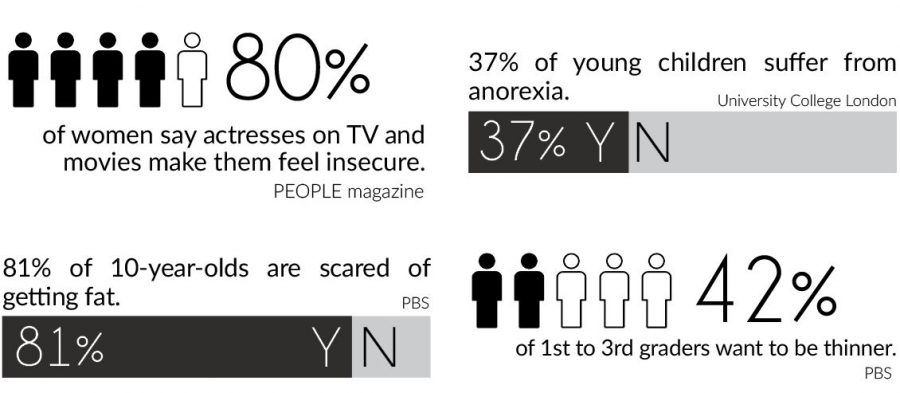Child pageants reinforce society’s negative self-image perceptions
One minute, a young child is playing on the playground with her friends at school; the next thing she knows, her parents have pulled her away and forced her to put on makeup, wear provocative outfits and present herself to a panel of judges. While most parents believe they have their child’s best intentions in mind, the parents of child pageant contestants need to realize they are inflicting more damage than good.
Every year around 250,000 children participate in over 5,000 child beauty pageants, according to Occupy Theory. Although some parents may ask for their children’s consent, these underage girls are too young to truly know if pageantry is what they want, especially if their parents are guiding them towards a certain path. The parents may say that they enroll their children in the hopes that they would learn something from the pageants, but, as I see it, the only things these little girls are learning are that appearances do in fact matter and that portraying themselves sexually is important.
Take 20-year-old Mississippi college student Madison Berg, who entered her first pageant when she was five months old. This past December, she published an article in The Sun, a News UK Company, describing her experience in the pageants and the hate she dealt with outside of them. She has also become extremely dissatisfied with her body. Other contestants have even taken on eating disorders in an attempt to remain the “perfect” weight, according to psychologist Martina Cartwright.
Aside from mental health, physical health can also be affected. In an article written by Dr. Rick Nauert, he reveals that these parents give their children caffeinated drinks and Pixy Stix candy, also known as “pageant crack.” In hopes of their children staying awake, these parents let their children consume unhealthy products instead of getting them the necessary sleep and proper nutrition while preparing for pageants. This leads to the infamous tears and temper tantrums that are often associated with these child pageant contestants.
Pageantry also sexualizes young participants. Contestants often wear evening gowns and bikinis while striking suggestive poses. Aside from these revealing outfits, children also run around in heels, which damages their developing feet to the point that the only footwear their bodies will feel comfortable wearing are the heels, according to The Week Magazine. All of the makeup and hairspray being used on little girls doesn’t help either—usage of these products can cause health issues and attract predators toward these children.
While some little girls might enjoy the idea of being in a spotlight with their frilly dresses and dancing around on a stage, they do not comprehend their actions or how others are viewing them. To them, they’re playing dress-up. But to outsiders who only know these children for their dramatic makeup and showy outfits, the underage contestants can be viewed over-the-top or even as sexual objects.
As they get older, these girls sometimes become insecure about their appearances after being forced to wear long eyelashes, lipstick and even false teeth, unable to accept themselves for who they are because they feel they need the aforementioned items to be “beautiful.” What kind of parent willingly lets their child think this way?
Child pageants must be eliminated for contestants under 18. School talent shows, on the other hand, are acceptable since many schools often have specific dress codes prohibiting their students from wearing revealing outfits. There are other activities for children that don’t strip away their confidence and teach them unhealthy lessons, like music and sports.
To all parents who are currently enrolling their children in pageants or who are thinking about doing so, please ask yourself if the so-called “benefits” are worth the long-term damage. At the end of the day, children are just children and should enjoy running around on the playground or having play dates instead of being used as objects to be paraded across a stage.
Your donation will support the student journalists of Diamond Bar High School. Your contribution will allow us to purchase equipment and cover our annual website hosting costs.



